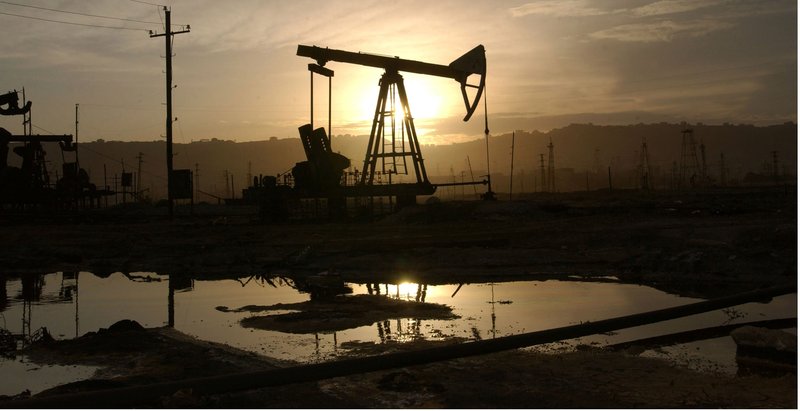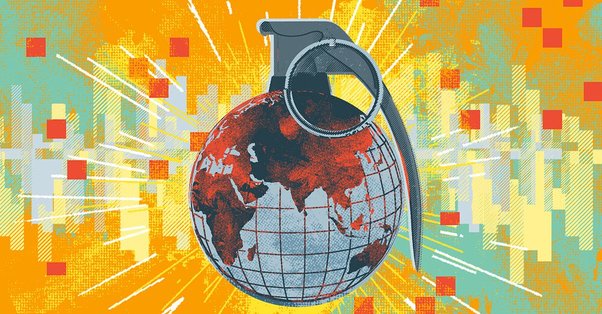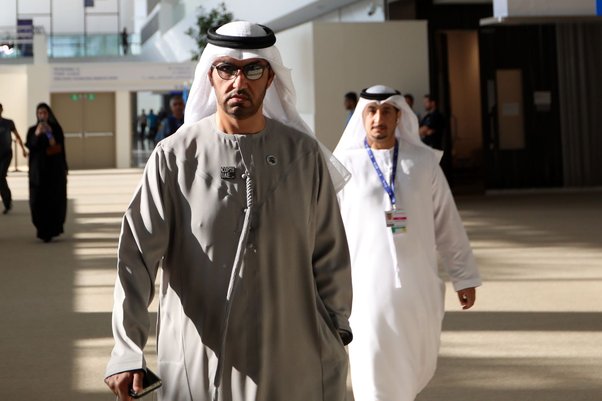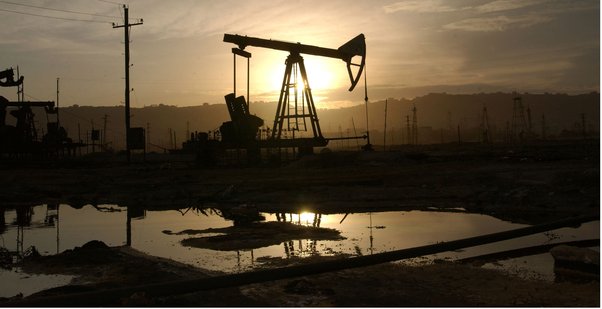The State Oil Company of Azerbaijan (SOCAR) struck a slew of deals potentially worth more than $8 billion in the year that Baku is hosting COP29 climate talks, new analysis shows

The 25 deals SOCAR signed with foreign firms since Azerbaijan was announced as COP29 host are worth close to three times more than contracts sealed in the preceding 12 months (worth $3 billion) and will involve the production and delivery of billions of barrels of oil and gas.
The dealmaking since Baku was awarded COP29 even trumps that undertaken in 2019 – the last pre-pandemic year – which saw $7 billion worth of purchases, exploration deals and engineering contracts involving SOCAR.
The findings appear to confirm a pattern of petrostates using UN climate talks – which are designed to reduce greenhouse gas emissions – as an opportunity to clinch oil and gas deals.
Earlier this year a Global Witness investigation showed that the Abu Dhabi National Oil Company (ADNOC) sought oil and gas deals worth $100 billion in 2023, the year when the UAE hosted COP28.
It now looks like Azerbaijan – which nominated a former long-time SOCAR executive as COP29 president – has picked up the baton as a petrostate using climate talks to secure fossil fuel contracts for the second year running.
Azerbaijan’s fossil fuel ambitions
SOCAR is projected to produce the second highest proportion of new oil and gas, after closing at least 25 deals covering gas supply, exploration and its first ever foreign upstream acquisitions.
The deals signed by SOCAR in 2024 include a $468-million acquisition of stakes in gas projects in the UAE and the sale of a share of a Caspian Sea oil field to Hungary’s MVM for $1.5 billion.
The 3% purchase of ADNOC’s Sarb and Umm Lulu fields is SOCAR’s first international oil and gas production investment in its history and gives it access to a share of 1.1 billion barrels of crude oil.
The Azeri-Chirag-Guneshi field, of which SOCAR owns the largest share, contains close to 2.4 billion barrels of oil and is set to generate the Azeri firm a share of $14 billion over the next decade.
In 2024 SOCAR also sought fossil gas supply deals with at least six countries and oil production sharing agreements with several western majors, including Britain’s BP.
It seems as if each year we have another fossil fuel company using climate talks to pursue more oil and gas deals
The increase in business activity since Baku was announced as COP29 host is in line with statements made by senior Azeri officials suggesting plans to privatise parts of SOCAR.
In April, President Ilyan Aliyev – himself a former senior SOCAR executive – said hosting climate talks would not prevent Azerbaijan from exploiting oil and gas reserves he described as “a gift from the gods.”
To meet increased EU demand for Azeri gas since Russia’s invasion of Ukraine, SOCAR plans to produce the second-highest percentage of new oil and gas of any state fossil fuel company, Global Witness analysis shows.
Of the top 30 national oil companies globally, only Angola’s Sonangol (46%) plans a higher proportion of new oil and gas production by 2050 than SOCAR (44%).
Global Witness contacted Socar, COP29 and the Ministry of Foreign Affairs with an opportunity to comment on its findings but did not receive a response.
No place for polluters at COP
The UN and the IEA both say that new oil and gas projects are incompatible with the 1.5°C temperature goal of the Paris Agreement – which hosts of COPs are mandated to work towards and which COP29 President Mukhtar Babayev has committed to keeping in reach.
Nearly 200 countries agreed to “transition away from fossil fuels” during last year’s COP28, finally acknowledging – after nearly 30 years of international summits – the climate-wrecking impact of oil, gas, and coal.
“Whilst we didn’t turn the page on the fossil fuel era in Dubai, this outcome is the beginning of the end,” said UN Climate Change Executive Secretary Simon Stiell at the time.
“Now all governments and businesses need to turn these pledges into real-economy outcomes, without delay.”
Patrick Galey, Senior Fossil Fuels Investigator at Global Witness, said: “With the climate crisis still getting worse each year, it seems as if each year we have another fossil fuel company using climate talks to pursue more oil and gas deals.
“COP29, which vulnerable nations are depending on to secure a path for a future they can survive, risks being co-opted by Azerbaijan’s state oil company. SOCAR’s aims – to produce vast quantities of oil and gas for decades – is directly opposed to the stated aim of UN climate talks.
“This conflict of interest is undermining progress towards the one thing we know will prevent climate breakdown: a rapid and fair phase-out of fossil fuels. Big polluters have no place in this discussion. We must kick them out of these talks before it’s too late.”
Methodology: Tracking SOCAR’s growing oil and gas portfolio
- Global Witness analysed the deals SOCAR, including all SOCAR subsidiaries, either pursued or confirmed with international entities since Azerbaijan was announced as COP29 host in December 2023. We sourced data from a variety of datasets, including Rystad Energy’s M+A Analysis Dashboard and Eikon Refinitiv/LSEG’s Deal Tracker service. It also included deals listed in official company and media reports
- We searched M+A and equity deal databases since January 1 2019 for all SOCAR’s major subsidiaries, excluding purely domestic contracts
- While Global Witness did its utmost to identify all deals sought by SOCAR over the last five years, it cannot exclude the possibility that some were missed. There were likely deals that were negotiated but never made public, meaning deal frequency and values for each year are likely to be underestimated
- Not all deals pursued by SOCAR in 2024 were confirmed; for several, negotiations are ongoing. Global Witness has included unfinalised deals because it believes there is credible evidence to suggest that SOCAR was involved in active negotiations throughout the year that Azerbaijan was COP29 host
- We used data sourced from Rystad’s Asset Report Sheet and UCube service to calculate the projected oil and gas production, investment and income generated from a number of oil and gas assets, the Azeri-Chirag-Guneshli, Shah Deniz and Absheron fields in the Caspian Sea, and the Umm Lulu and Sarb gas fields in the UAE
- Potential dollar values for transactions, contracts, takeovers and mergers were taken from either company statements or media reporting. Where possible, Global Witness has done its best to calculate the likely value of a deal SOCAR completed but for which financial details were not disclosed. For acquisitions, we used company financial reports’ values of total equity and/or total balance sheet to calculate a value range of a given transaction. For supply contracts, we calculated estimated values based off volume, duration and commodity price data. Where a dollar value for a transaction was neither disclosed by one or both companies, reported by media, or for which Global Witness was not able to reach a confident estimated figure, values have been left blank. This means the annual dollar figures for all years studied in this investigation are likely to be underestimates
- Mukhtar Babayev was provisionally nominated as COP29 president on January 5, 2024 after Azerbaijan was named COP29 host on December 9, 2023. As such, Global Witness has focused on seeking to identify and, where possible, value deals pursued by SOCAR, then compare that amount and value involved with each of the four previous years. Babayev will technically remain COP president until the beginning of COP30 in November 2025


